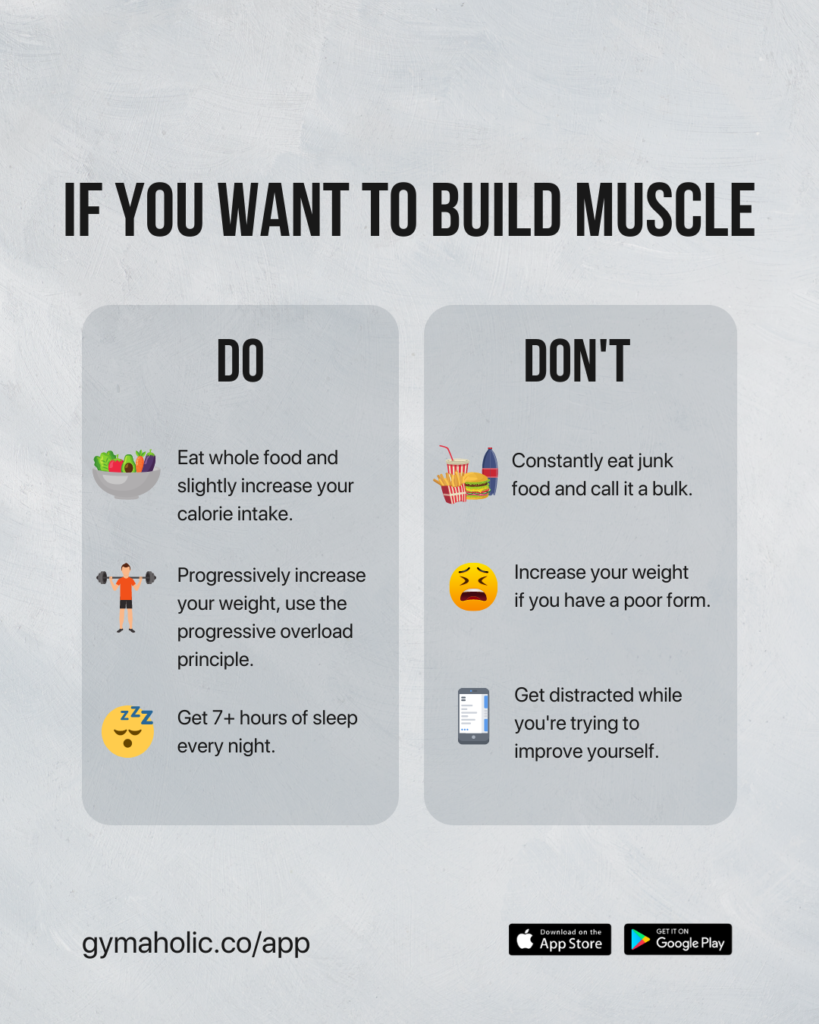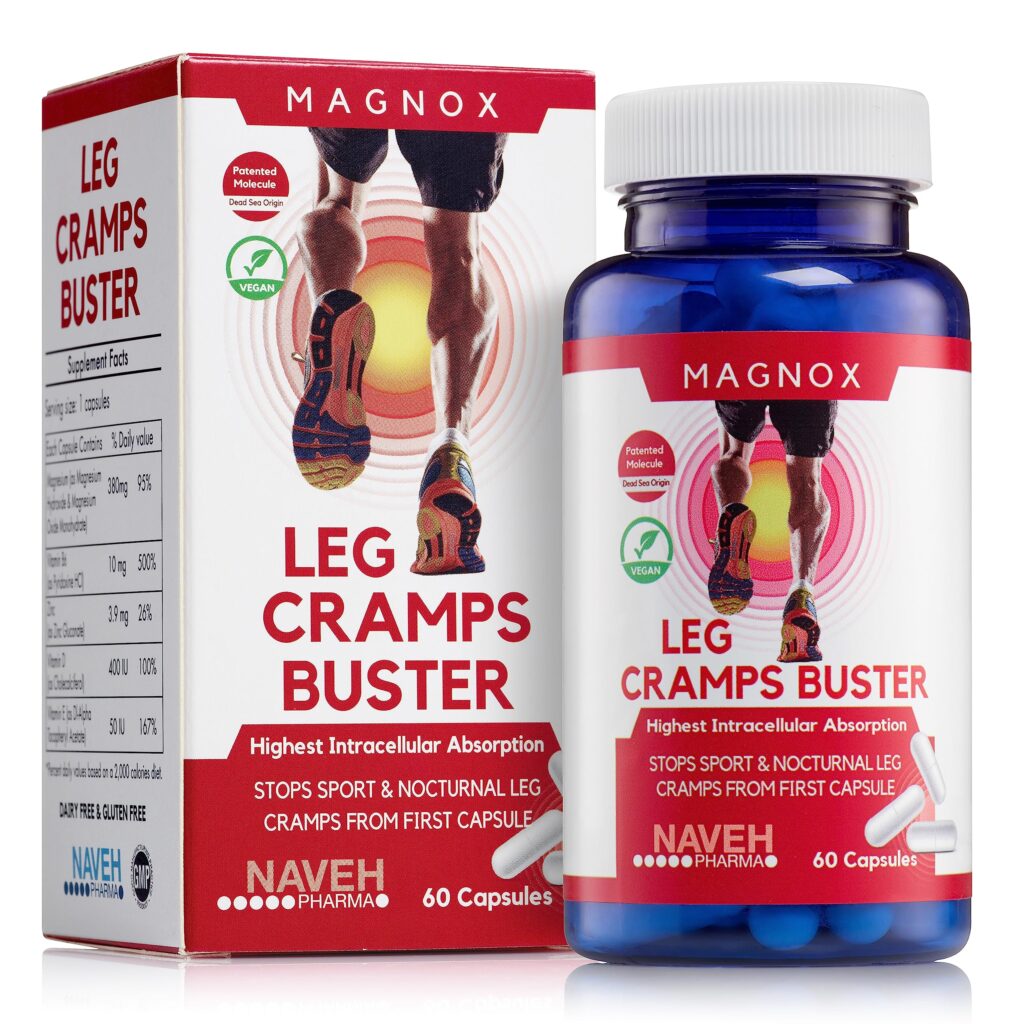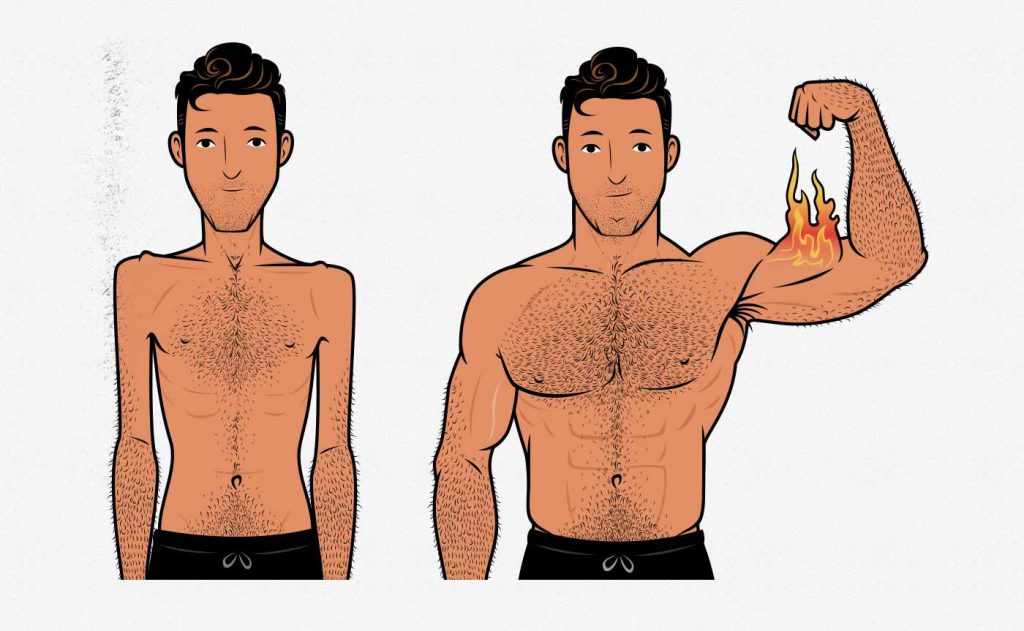You might be struggling to gain muscle due to insufficient protein intake or ineffective workout routines. Consistency and recovery also play crucial roles.
Gaining muscle can be challenging for many individuals. Proper nutrition, effective workout plans, and adequate rest are vital for muscle growth. Consuming enough protein supports muscle repair and growth. Effective workout routines, including strength training, stimulate muscle fibers. Consistency in your training and diet is essential.
Without it, progress can stagnate. Rest and recovery allow muscles to repair and grow stronger. Overtraining can hinder progress and lead to injuries. Tracking your progress helps identify what works and what doesn’t. Small adjustments in your routine and diet can lead to significant gains. Understanding these factors can help you overcome the struggle and achieve your muscle-building goals.

Credit: www.reddit.com
Common Muscle Gain Challenges
Your diet plays a big role in muscle growth. Eating enough protein is essential. Protein helps repair and build muscle. Include lean meats, eggs, and beans in your diet. Carbohydrates are also important for energy. Whole grains and vegetables are good sources. Healthy fats are needed too. Avocados and nuts provide good fats. Avoid junk food and sugary drinks. They do not help in muscle gain. Balanced meals help your body grow strong muscles.
Sleep is crucial for muscle recovery. Your body repairs itself during sleep. Aim for 7-9 hours of sleep each night. Poor sleep can slow muscle growth. Quality sleep helps improve performance in workouts. Create a bedtime routine to improve sleep quality. Avoid screens before bed to fall asleep easier. A dark, quiet room helps you sleep better. Rest is just as important as exercise for muscle gain.
Role Of Diet
Eating enough protein is vital for muscle growth. Protein helps repair and build muscles. Aim for around 1 gram of protein per pound of body weight daily. Good sources include chicken, fish, and beans. Protein shakes can also help meet your goals.
A caloric surplus means eating more calories than you burn. This helps your body build muscle. Track your calories to ensure you eat enough. Healthy fats, carbs, and proteins should be balanced in your meals. Nuts, whole grains, and lean meats are great choices.
Importance Of Rest
Good sleep is key for muscle growth. Muscles repair and grow during sleep. Aim for 7-9 hours of sleep each night. Poor sleep can lead to muscle loss. It also causes fatigue and low energy. Use a dark, quiet room for better sleep. Avoid screens before bed. This helps improve sleep quality.
Muscles need time to recover. Rest days are crucial. They help muscles to heal and grow. Overworking muscles can cause injuries. It can also delay progress. Include rest days in your workout plan. Listen to your body. If you feel sore, take a break. Proper recovery leads to better muscle gains.
Effective Workout Routines
Strength training is key for muscle gain. It helps in building and defining muscles. Use weights that challenge but do not strain. Proper form prevents injury and boosts muscle growth. Consistency is important for seeing results. Work on all major muscle groups for balanced strength.
Progressive overload means gradually increasing the weights you lift. This method forces muscles to adapt and grow stronger. Start with manageable weights and add more over time. Small increases ensure steady muscle growth. Keep track of the weights and reps in a workout journal. This helps you see your progress and stay motivated.
Supplements And Their Benefits
Whey protein helps build muscle. It provides essential amino acids. These acids repair muscles after workouts. Whey protein also boosts the immune system. It is easy to digest. This makes it perfect for post-workout shakes. Consuming whey protein speeds up muscle recovery. It helps in gaining lean muscle mass.
Creatine increases muscle strength. It boosts energy levels during workouts. This helps lift heavier weights. Creatine also improves muscle recovery. It hydrates muscle cells, making them bigger. Regular intake of creatine leads to muscle growth. It is safe and effective for most people.
Mental And Emotional Factors
Stress affects the body’s ability to build muscle. High stress levels release cortisol, which breaks down muscle tissue. It is hard to gain muscle with high cortisol. Try deep breathing or meditation to reduce stress. Getting enough sleep also helps manage stress. Aim for 7-9 hours of sleep each night.
Being consistent is key to muscle growth. Skipping workouts makes it hard to gain muscle. Stick to a regular workout schedule. Make a plan and follow it every week. Nutrition also needs consistency. Eat enough protein and calories daily. This fuels muscle growth.
Tracking Progress
Tracking body measurements can help you see progress. Measure your chest, arms, and legs. Record these measurements every week. Compare them to see if you are growing. This can show if your workouts are working. Use a measuring tape for accuracy. Write down each measurement in a notebook.
Keeping workout logs is very helpful. Write down each exercise you do. Note the weight you lift and the reps you complete. Track how you feel during each workout. This helps you see patterns and improvements. A workout log can show what needs changing. Review your logs regularly to stay on track.

Credit: www.bodybuilding.com
Professional Guidance
Personal trainers can help you build muscle. They create customized workout plans that fit your needs. Trainers teach you the correct form for exercises. Using the right form prevents injury. Trainers can motivate you to push harder. They track your progress and make adjustments as needed. This can lead to better results.
Nutritionists play a key role in muscle gain. They design meal plans that provide the right nutrients. Eating the right foods helps your muscles grow. Nutritionists know how to balance proteins, carbs, and fats. They can help you avoid junk food that hinders progress. Nutritionists offer advice on supplements. This helps you get the most out of your diet.

Credit: m.facebook.com
Frequently Asked Questions
Why Can’t I Gain Muscle Despite Working Out?
Gaining muscle requires a combination of proper nutrition, consistent training, and adequate rest. Ensure you consume enough protein, follow a structured workout plan, and get sufficient sleep. Sometimes, genetics and overtraining can also hinder muscle growth.
What Foods Help Build Muscle Quickly?
Protein-rich foods like chicken, fish, eggs, and legumes aid muscle growth. Combine these with complex carbs like sweet potatoes and whole grains. Don’t forget healthy fats from avocados and nuts. A balanced diet is crucial.
How Much Protein Do I Need To Build Muscle?
Aim for 0. 8 to 1 gram of protein per pound of body weight daily. Protein helps repair and build muscle tissues. Spread your protein intake throughout the day for optimal results.
Is Sleep Important For Muscle Growth?
Yes, sleep is crucial for muscle recovery and growth. Aim for 7-9 hours of quality sleep each night. During sleep, your body repairs muscle tissues, which is essential for growth.
Conclusion
Gaining muscle can be challenging due to various factors. Ensure your diet, workout routine, and recovery methods are optimized. Consistency and patience are key. Listen to your body and make necessary adjustments. By staying dedicated, you’ll eventually see the muscle growth you desire.
Keep pushing forward and don’t get discouraged.










